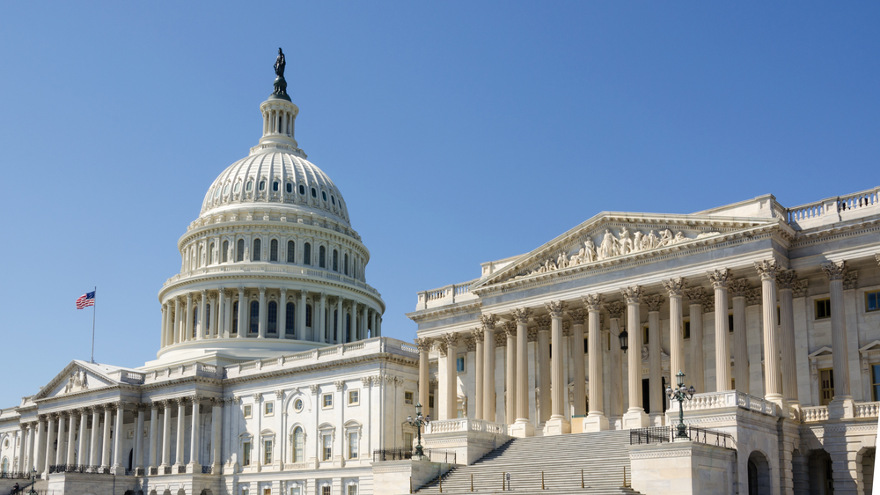AFSA & CBA caution Senators about expanded use of MLA to create rate cap

By subscribing, you agree to receive communications from Auto Remarketing and our partners in accordance with our Privacy Policy. We may share your information with select partners and sponsors who may contact you about their products and services. You may unsubscribe at any time.
WASHINGTON, D.C. –
Earlier this year, compliance expert Randy Henrick dissected the complex new law in Illinois that’s creating challenges for dealerships, finance companies and service providers.
Now some members of the U.S. Senate want to use a similar path to create nationwide policy with lawmakers examining the issue during a hearing on Thursday.
American Financial Services Association president and chief executive officer Bill Himpler cautioned Senators from making that choice when he testified before the Senate Banking, Housing, and Urban Affairs Committee in a hearing titled, “Protecting Americans from Debt by Extending the Military’s 36% Interest Rate Cap to Everyone.”
In his testimony, Himpler warned of the “disastrous effect” a 36% rate cap would have on Americans’ ability to manage their own financial lives.
“When someone who is underbanked or has less than perfect credit is turned down or does not have access to a needed loan, it is not a consumer-protection victory. It is a civil rights loss,” Himpler said. “All consumers deserve access to safe and reliable credit.”
Himpler highlighted recent studies that confirm that millions of Americans would be cut off from reliable small-dollar credit should a national rate cap be imposed, and the growing consensus that rate caps harm consumers, particularly those with subprime credit.
Subscribe to Auto Remarketing to stay informed and stay ahead.
By subscribing, you agree to receive communications from Auto Remarketing and our partners in accordance with our Privacy Policy. We may share your information with select partners and sponsors who may contact you about their products and services. You may unsubscribe at any time.
“Nearly one in three Americans do not have a prime or excellent credit score. Fifty-three million adults have thin or no credit files,” Himpler told the committee. “When reputable small-dollar lenders cannot serve underbanked or subprime consumers, the consumers are left to turn to unregulated or illegal predatory lenders.”
Consumer Bankers Association general counsel and senior vice president David Pommerehn also testified during Thursday’s hearing.
“A fundamental aspect of lending and a cornerstone to prudent banking practices is the ability for banks to price for risk,” Pommerehn said during his opening comments.
“While well-intentioned, a cap on interest rates is not an effective policy for protecting against debt traps or other negative outcomes for consumers,” he continued. “Banks in the United States are highly regulated entities that carefully and appropriately price risk before extending credit to anyone. Placing a cap on that price in the form of an all-in maximum annualized percentage rate does not mean that consumers will get lower rates on their loan; it means that in many cases consumers will not have the option to access a loan at all.
“Research today demonstrates that interest rate caps reduce credit availability and create negative outcomes for the populations their proponents intend to benefit,” Pommerehn added.
At the beginning of the hearing, Senate Banking Committee ranking member Sen. Pat Toomey of Pennsylvania made similar points when objecting to the purpose of this lawmaker gathering.
“It is a fundamental principle of economics that markets discover prices. Sellers compete until they reach the lowest prices that will let them stay in business. The only exceptions are under monopoly conditions, which generally only exist when the government creates or facilitates them,” the Republican said.
“Nevertheless, history is littered with examples of government planners’ failed attempts to set prices. They fail because they generate huge unintended consequences, which inevitably harm the very people they are supposed to protect,” Toomey continued.
“Proponents of a 36% interest rate cap seem to think it would result in borrowers getting cheaper credit, but that’s just not the case. In fact, those most in need would simply lose access to credit. If a lender can’t recoup its costs, it won’t make the loan,” he went on to say.
Meanwhile, Sen. Sherrod Brown of Ohio, the Democrat who is the committee chair, pointed out that since 2010, Montana, South Dakota, Colorado, Nebraska, California and Illinois have all passed laws to cap interest rates on consumer loans at 36%. Brown wants passage of the Veterans and Consumers Fair Credit Act, which is a proposal to extend the Military Lending Act’s 36% interest rate cap to cover veterans and all Americans.
“Our legislation builds on the success of the Military Lending Act, and extends its 36% cap to everyone — including to the veterans and surviving family members left out of the original law,” Brown said.
In his opening statement during Thursday’s hearing, Brown took this approach.
“Another argument we hear from the payday lobby is that no one can be profitable offering loans at 36% interest,” Brown said. “Really? 36% is still pretty darn high, and will make any company plenty of money.
“I’d ask my colleagues to think about their own credit cards or mortgages or loans they’ve taken out — I’m betting your rates were a whole lot lower than 36%,” he went on to say.


